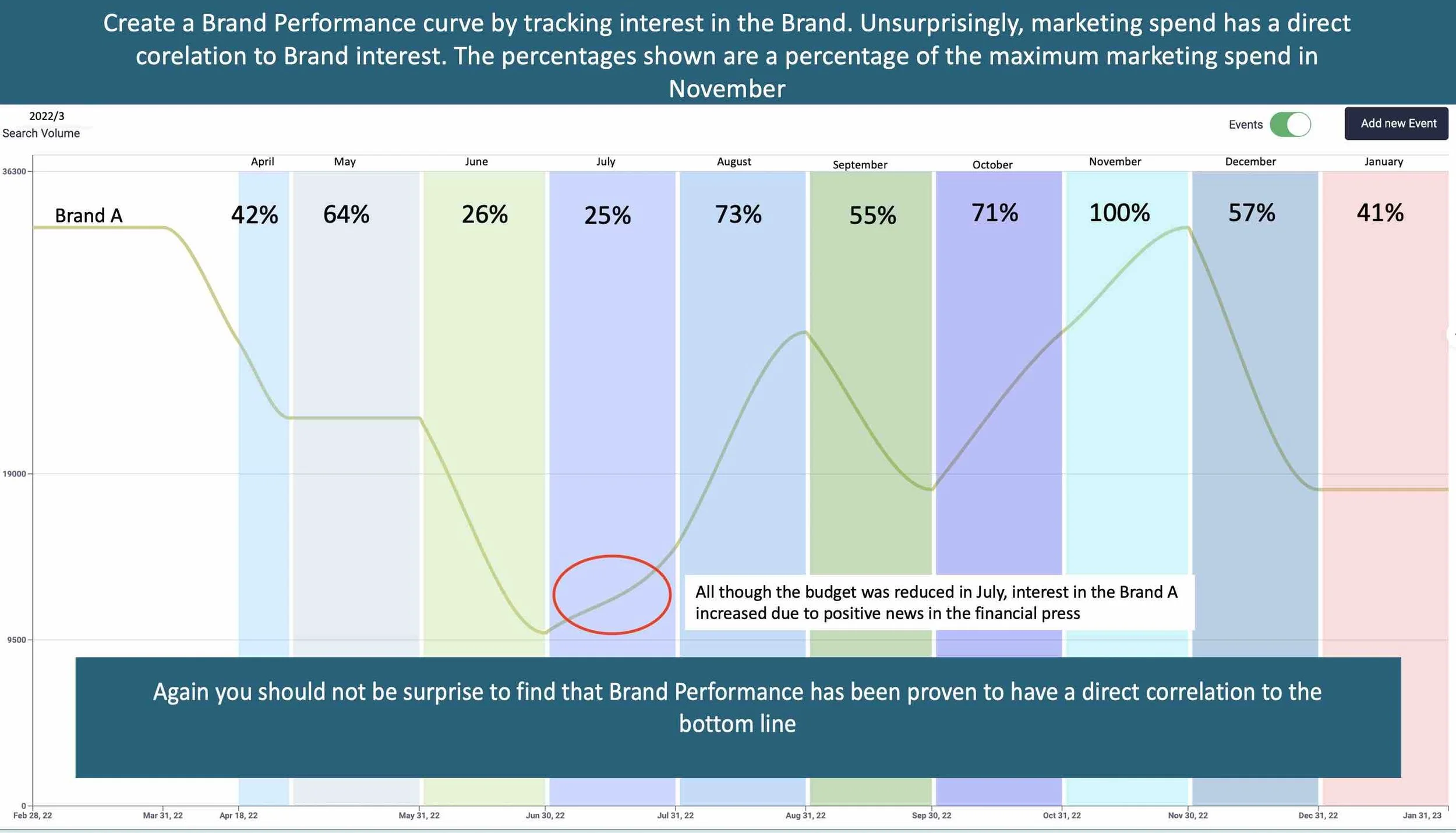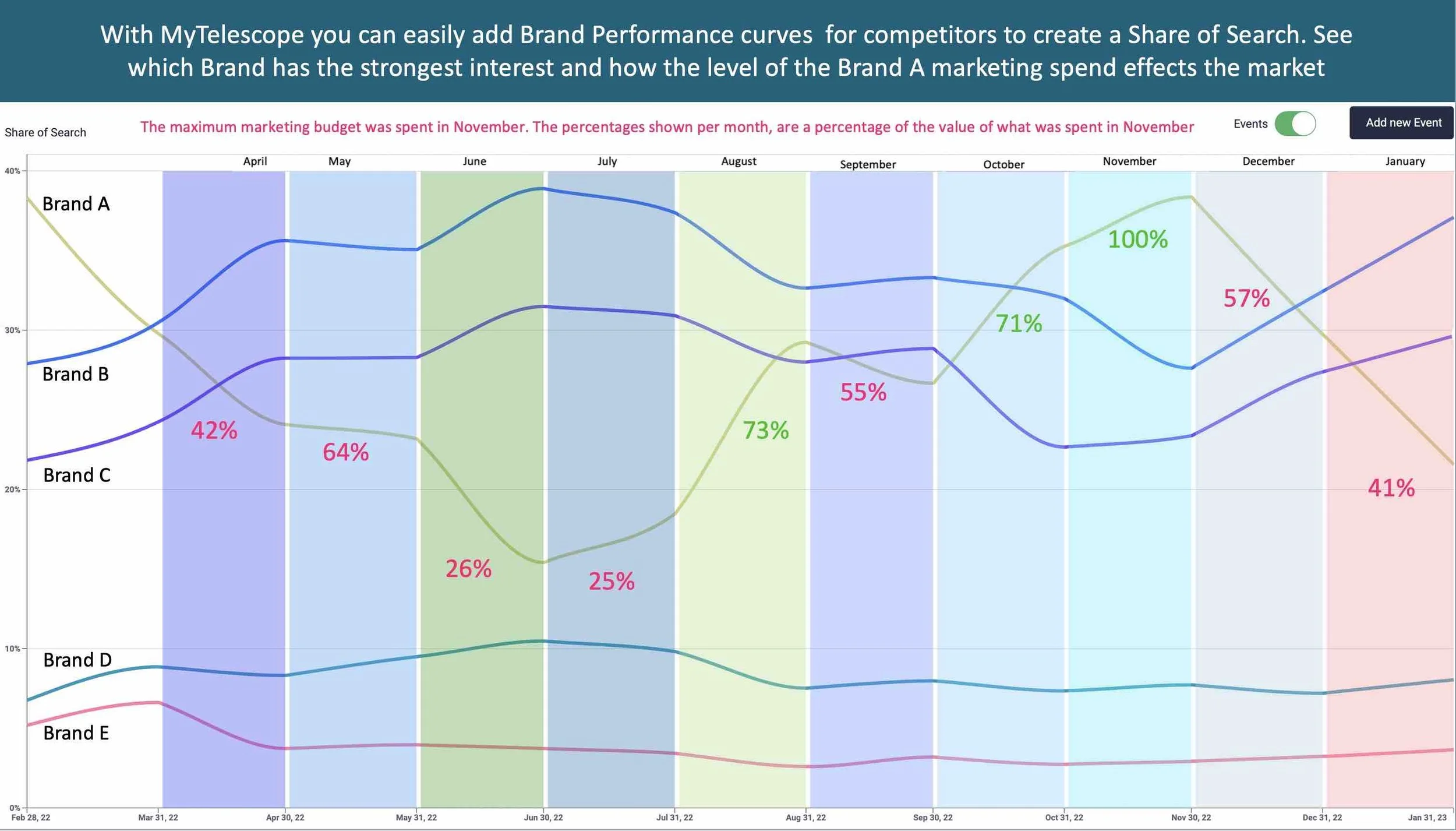The consequences of reducing marketing budgets on future sales
by Andrew Lister Executive Director, MyTelescope & Adam Isselbacher SVP, Group Director, Research & Analytics UM Worldwide
Search interest data strongly correlates with market share, although the lead time for sales and market share predictions varies by category. For instance, we can see the effects of budget decreases resulting in diminished brand performance within the medical care sector. In assessing the extent of this outcome, it is crucial to benchmark against industry rivals, thereby determining whether the brand has experienced declines in consumer interest and its prospective market share.
Understanding the level of search interest in the brand and how that relates to the level of search interest in the brand's competitors underscores the need for a delicate balancing act between marketing initiatives and financial stability.
Balancing Act: The Crucial Importance of Setting the Right Budget
Upon comparing Brand A to its industry peers, it is evident that the brand is experiencing a decline in its share of brand interest, resulting in an average annual decrease of 28%. This decline in brand interest will correlate with a drop in market share.
The link between marketing initiatives and financial stability is clear. Excessive tinkering with marketing budgets can lead to a precipitous decline in brand performance.
We strongly recommend close collaboration between marketing and financial departments to ensure a stable growth trajectory. Companies can mitigate the risks associated with volatile, high-risk top-line growth journeys by working together on budgeting forecasts. Ultimately, it is not worth jeopardizing market demand and market share.



